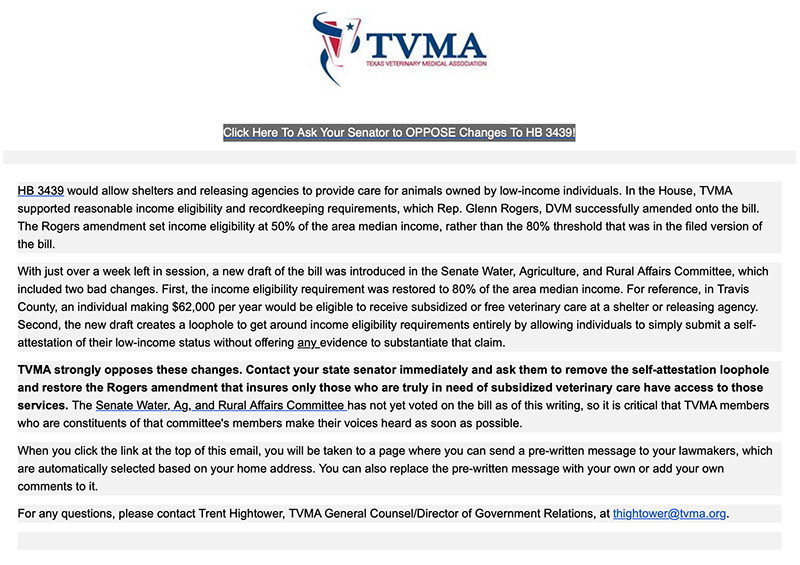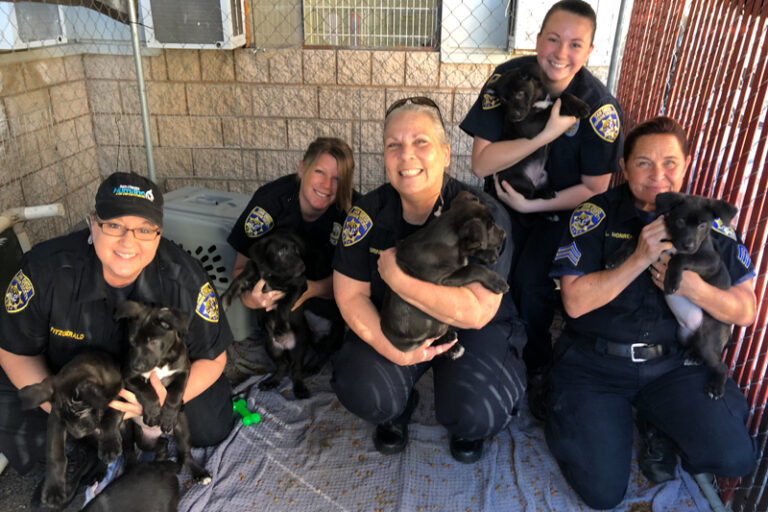My dog Ranger first started having seizures at 3 a.m. on a Tuesday morning. At 5 years old, my happy, healthy, and active little shadow who’d never had an inkling of health issues was suddenly violently convulsing at the foot of my bed and I had no idea what to do or how to help him.
That trip to the veterinarian cost me just shy of $3000. I was fortunately able to pay that bill with my limited savings and help from my parents – an unearned privilege that I don’t take for granted. The medicine, bloodwork, and trips to the vet during subsequent periods of epileptic cluster seizures have cost hundreds, even thousands, of dollars each year since.
In our 10 years together, I’m thankful I haven’t been put in the position of having to choose between keeping Ranger and relinquishing him to a shelter or rescue so that he gets the veterinary care he needs to live a safe, healthy life.
Millions of American pet owners are in exactly that position—unable to access veterinary care for their pets, and faced with terrible options: not treating the pet; euthanizing the pet (called “economic euthanasia”); or surrendering their pet to an animal shelter, where they may be treated and adopted to another family, or, while shelters are desperately overcrowded and stretched for resources, they may be euthanized.
There is no single solution to the access to veterinary care crisis. But Texas is exacerbating the problem by denying residents one important source of relief, available in every other state: allowing animal shelter veterinarians to treat owned pets.
It is a problem across the country, that people and pets are financially stretched, to put it mildly—which affects access to veterinary care.
Approximately 38 million people live below the poverty line in America today (and this may be a serious underestimation). That means at least 20 million pets are living below the federal poverty line, too.
There are few low-cost or free options for veterinary care available for these families and it’s clear that the existing options are insufficient: more than two-thirds of pets living with families in poverty have never seen a veterinarian.
Meanwhile, one in three pets need emergency vet care every year, which can be hard if not impossible for the more than 50% of American families living paycheck-to-paycheck. Indeed, a 2018 study by the University of Tennessee and Maddie’s Fund found that nearly one-third of pet owners face barriers to preventive veterinary care, and that 80% of those pet owners identify financial constraints as the primary barrier to veterinary care for their pets.
At the same time, nearly all pet owners—regardless of income—consider their pets as family. Not being able to get a pet the veterinary care they need places a heavy emotional burden on both pet owners who can’t treat their pets, and veterinarians who have to turn families away.
In some cases, veterinarians at government and nonprofit animal shelters are able to fill some of the gaps in the services—when the law allows.
Most state laws are silent as to whether government animal shelters and nonprofit rescues can provide veterinary care to owned pets. But two states still limit a government shelter’s or nonprofit rescue’s ability to treat owned pets.
North Carolina is one. Veterinary medical services can be provided to the public by nonprofit animal rescue veterinarians, but only in very narrow circumstances where the organization was formed by a licensed veterinarian.
Texas is the only remaining state that explicitly forbids any shelter or rescue veterinarian from treating owned pets—even while the state’s animal shelters face crisis level intakes and HASS data shows lack of access to veterinary care remains one of the most-cited reasons for relinquishment in the state.
Texas law is extremely harsh, and currently prohibits “releasing agencies”—i.e., a public or private animal shelter, or nonprofit rescue group—from providing nonemergency veterinary care, except spay and neuter surgery, to an animal who the releasing agency “knows or should know ” has an owner.
There is a broad exception to this rule if the owner is indigent, which is not legally defined, but is generally considered to be a person without any assets to their name. Because there is no guidance in the law about what constitutes indigent, in practice, this is a legal gray area in which shelters risk providing vet treatment illegally to owned pets, if they provide it at all—which the vast majority do not.
Until this year, Washington State had the same prohibition on shelter veterinarians treating owned pets. But in 2019, the Washington legislature passed SB 5004, requiring the Washington Veterinary Board of Governors to pass rules authorizing animal care and control agencies and nonprofit humane societies to provide full veterinary service to low-income households.
The Board finalized its new rules in May, and now allows pets in low-income families to receive treatment from veterinarians employed by animal care and control agencies and nonprofit humane societies. “Low-income” is defined in alignment with federal regulations—as 80% of Area Median Income (AMI), adjusted for household size—and, importantly, the new rules allow shelters to verify household income by self-attestation.
Texas had the chance in its most recent legislative session to pass similar legislation—but failed to do it.
HB 3439, championed by Texas Pets Alive!, with support from HASS—TPA! and HASS are part of Austin Pets Alive!—would have allowed shelters and rescues to treat owned pets for families whose household income was 80% or less of AMI, adjusted for household size.
The purpose of HB 3439 was to allow releasing agency veterinarians to treat and then return owned pets to their family. This bill would have saved animals’ lives and relieved some shelter overcrowding, while honoring and preserving the human-animal bond in low-income families. It simply would have provided one single humane option for families who now likely don’t have any existing choices to treat their pets.
The question hanging over the heads of those of us who followed this bill’s path is: Why didn’t it pass?
We know so many of the people fighting alongside us are veterinarians and staff who recognize that increasing access to veterinary care for low-income families is not in conflict with a sustainable and profitable veterinary profession, and we’re grateful for all that you do.
But the Texas Veterinary Medical Association (TVMA) ardently opposed HB 3439. Bafflingly, the TVMA called the self-attestation option a “loophole” and argued that people who are living in households at 80% AMI—a standard widely recognized as being the threshold for low-income—were not families “truly in need of subsidized veterinary care.” We believe that the TVMA’s opposition doomed the bill, this session.

Conversely, in Washington, the Washington State Veterinary Medical Association was “instrumental” in the passage of SB 5004.
This is not the end. At HASS and TPA! we recognize that access to veterinary care impacts both ends of the leash.
During the next legislative session in Texas, in 2025, we’ll return to the Capitol to keep pushing for increased access to affordable veterinary care for low-income families. In the meantime, we’ll work with our partners on the ground in Texas to increase access to nonprofit veterinary clinics and the services that can, legally, be provided by shelter and nonprofit rescue veterinarians—including sterilization and emergency veterinary care.
As I write this, Ranger is napping on top of my feet. Still my little shadow, now entering his senior years, he’s been with me through law school, multiple moves across the country, job changes. He is my constant companion through all the ups and downs of life.
I know that our story could have had a very different ending and I know that systemic economic injustice—not personal choice—is so often at the root of who is able to keep the pets they love, and who cannot. The bond a person experiences with their pet has nothing to do with financial circumstances. We will keep fighting for policies and laws that protect the human-animal bond for all families—regardless of income level.
If you or somebody that you know needs help finding free or low-cost veterinary services in their community, please check out pets.findhelp.com.
If you offer a pet support program, make sure they’re listed on pets.findhelp.com!
Lauren Loney is the Staff Attorney & Policy Specialist for Austin Pets Alive!, including HASS and Texas Pets Alive!. Lauren is a licensed attorney in Texas working to undo the traditional siloing of human and animal policy advocacy efforts. She has co-authored several publications and has given more than a dozen presentations on the intersection between animal welfare and housing justice.








